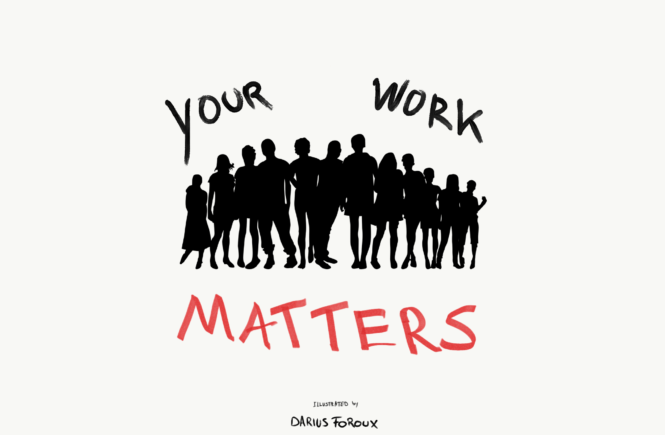Benjamin Franklin, one of the founding fathers of the United States, once said something that helps with managing our first impulsive desire:
”‘Tis easier to suppress the first desire than to satisfy all that follow it.”
This is a timeless truth about human nature and how we’re constantly pursuing our first desire.
Let’s say you’re scrolling through your social media feed and stumble across an ad for a shiny new gadget for your kitchen.
Maybe some magic trash bin that opens automatically when you look at it. The bin has eyes and knows you’re looking at it. Pretty neat, right?
“I need one of those!” You think.
But hold on a second – is it really necessary? Or is it just a fleeting desire sparked by clever marketing?
Remember Benjamin Franklin. In this case, it’s not about the trash bin. It’s about becoming a mindless consumer. If you always think, “I got to have that,” it becomes a lifestyle.
Now, this is a silly example. But Franklin’s advice is so true. We all have so many desires throughout the day. We can’t satisfy every urge we have.
It’s like opening a Pandora’s box of wants that are never fully satisfied.
That’s why it’s better to suppress that initial urge.
No pleasure without non-pleasure
Look, this is a philosophical topic.
Yin and yang.
If you only have pleasure, it becomes your default state, and you don’t realize how good it is.
But if you have some discomfort, some non-pleasure, it helps you fully appreciate the times of pleasure. For example, I’ve talked about how I once moved to Spain to see if I wanted to live there.
Compared to the weather in the Netherlands, where I’m from, Spain looks much better. However, I discovered that I prefer the conveniences I have in the Netherlands. I realized I took those for granted until I missed them in Spain.
The same concept can be applied to our consumerist culture.
We are constantly bombarded with ads that tell us what we need or should want. It’s an endless cycle of wanting more and more, always chasing the next shiny new thing.
But things only feel good because you also experience bad things.
Think about it. Rest feels good after work. Food tastes better after an intense workout.
This is why restraint is such an important topic. It helps you enjoy life to the fullest.
The power of restraint
How do we combat these urges that seem so irresistible at the moment? This is where self-restraint comes in. (Which is rare in our culture of instant gratification).
Restraint is not about denying yourself pleasures. It’s about making conscious choices instead of letting your impulsive desires lead your actions.
Always ask yourself: “Do I really need this?” or “Is this truly beneficial for me?”
One practical way to exercise restraint is to practice delayed gratification. This means resisting an immediate reward in favor of a later, often greater, benefit.
Remember the famous ‘Marshmallow Test’? Kids were given a marshmallow and told they could have a second one if they could wait 15 minutes without eating the first.1Source: SimplyPsychology
Those who managed to wait generally fared better in life, demonstrating the power of delayed gratification.
6 tips for improving your self-restraint
Self-restraint is like a muscle. The more you exercise it, the stronger it gets. Here are seven practical tips to help you build this invaluable skill:
- Practice mindfulness: Being present in the moment can help you recognize impulsive urges and choose not to act on them. Try mindfulness exercises or meditation to enhance your self-awareness.
- Use healthy distractions: When a desire hits, distract yourself with something beneficial. Go for a walk, read a book, or do some stretches. This can help shift your focus away from the urge.
- Remember your goals: Every time you follow an impulse desire, you trade away your genuine goals. Take impulse purchases, for example. Money means freedom. Every time you spend money, you lose a bit of that freedom. If you’re saving money for a house and end up spending what you saved on an expensive vacation or a car, you’re delaying your most important goals in exchange for satisfying an urge.
- Delay for a few minutes: Impulse urges often go away on their own. They just need a bit of time. Practice waiting before indulging in your desires. Start small – wait 15 minutes before giving in to a craving. Gradually increase this time. You’ll be surprised at how often the desire fades.
- Surround yourself with similar-minded people: It’s easier to exercise restraint when you’re around people who have the same goals. Working out and improving your diet is hard when the folks around you are all couch potatoes and junk food consumers. Same thing for the shopaholics. Stick with friends and family who can keep you accountable.
- Forgive yourself and move on: Everyone slips up sometimes. If you give in to a desire, don’t beat yourself up. Acknowledge the slip, learn from it, and move forward. It’s all about being consistent.
In our daily lives, we are constantly bombarded with desires – for material possessions, success, recognition, and more.
Giving in to every single one not only exhausts us but also leaves us unsatisfied and always wanting more.
So, the next time you feel that first desire creeping up on you, remember Ben Franklin’s wise words.
Take a moment to reflect, exercise restraint, and consider the power of delayed gratification.
The peace and satisfaction that come from this practice far outweigh the fleeting pleasure of immediate gratification.




